This post may contain affiliate links.
Did you know that you can use your diet to help fight aging skin? Keep reading to learn how!
All women’s skin is continually aging. It’s not something we can (or need to) completely avoid.
In fact, the first signs of skin aging tend to show up around the age of 25.
And while aging gracefully is an important mindset to develop, there are some steps you can take to help slow down your skin’s visible aging process.
Preventing skin aging doesn’t require a trip to the dermatologist and countless expensive treatments.
Your diet, and in turn the health of your internal body, is more related to the health of your skin than you may think.
Your skin is a window into the health of the rest of your body. When your skin is showing signs of aging, it could be telling you that you need to make some lifestyle changes.
Seeing changes in your skin can be as simple as including key nutrients in your diet that help fight signs of aging.
So, if you’re ready to learn how your diet can help fight skin aging, this article is for you!
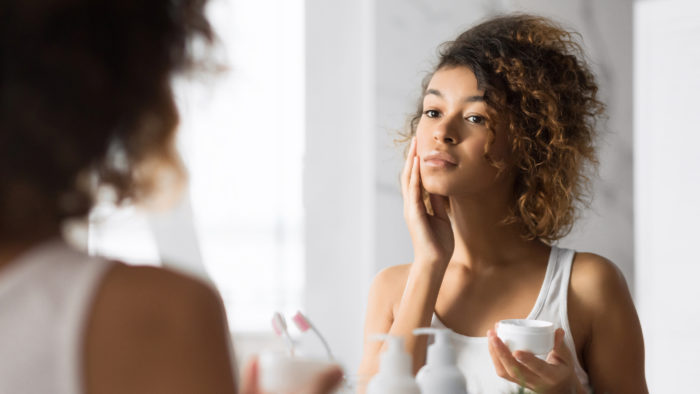
Why our Skin Ages
Our skin is the first line of defense from the outside world. It’s exposed to everything from sunlight, hot and cold temperatures, air pollution, bacteria, and potential chemical irritants.
These factors, along with the passage of time, play a role in the appearance of normal signs of skin aging.
Skin aging can look different for everyone, but here are some of the general signs of aging skin:
- loss of elasticity
- wrinkles or fine lines
- discoloration or pigmentation
- dryness
- sagging skin
To understand why our skin ages, we have to take a look at the structure and composition of our skin as an organ.
There are two primary layers to our skin: the outer epidermis, and the inner dermis.
The epidermis protects us from a variety of external factors like UV radiation, air pollution, and bacteria. The dermis is home to collagen and other proteins that give skin its strength and elasticity.
Both of these layers play a role in skin health, and both can show signs of aging.
Aging of the dermis is due to damage by oxidative stress and chronic inflammation. And the epidermis takes the biggest hit from the sun’s UV rays.
We see visible signs of aging on our skin when one or both of these layers start to degrade.
Skin aging is a natural process and one that we can’t halt completely. But we can help to support our skin health and fight signs of aging with some simple dietary changes.
Keep reading to learn about the best dietary nutrients to help fight aging skin.
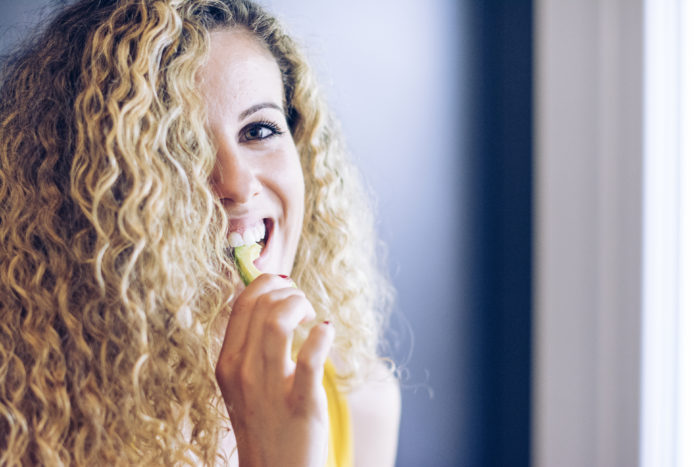
Why Diet Matters in Skin Aging
What you eat affects the health and wellbeing of every organ system in your body. So it makes sense that the health of your skin (your body’s largest organ) would respond to your diet as well.
Your skin relies on the vitamins, minerals, and even protein, carbs, and fats that you consume to stay healthy. The best prevention strategy for signs of aging is a well-regulated lifestyle.
A lifestyle that consists of moderate movement, stress management, adequate hydration, and a diet of primarily real food high in antioxidants is a recipe for healthy, youthful-looking skin.
Eating mostly whole plant and animal foods will benefit your skin health overall. But there are certain nutrients that are critical when it comes to preventing skin aging.
Here are the top seven most beneficial nutrients to add to your diet to help combat aging skin.
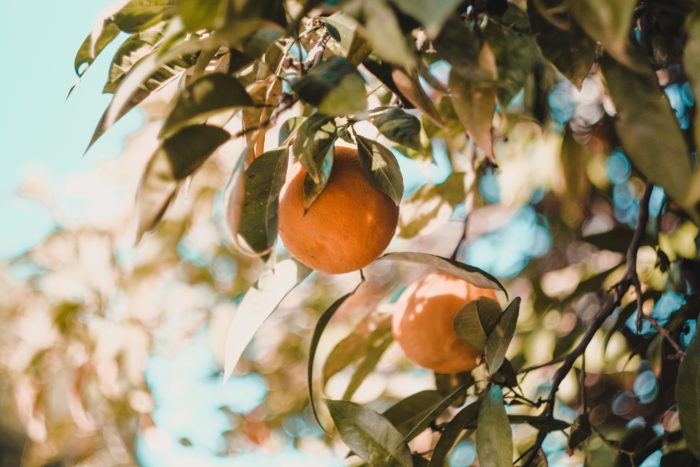
Vitamin C
Vitamin C is found in both the epidermal and dermal layers of your skin.
This potent antioxidant helps to encourage healthy collagen synthesis. Without enough collagen, you might see more drastic signs of aging like fine lines and wrinkles.
Higher intakes of dietary vitamin C are also correlated with a decrease in skin dryness. And the antioxidant properties of vitamin C help to protect the skin against UV-induced damage.
When we age, the vitamin C levels in our skin naturally decline. That means, along with the natural aging process, this decline in the skin-protective vitamin C can age our skin even more.
Increasing your intake of vitamin C rich foods like fresh fruits and vegetables (especially citrus, kiwi, strawberries, peppers, and parsley) can help maintain appropriate skin levels of vitamin C and fight signs of aging. Here’s a helpful list of high vitamin C foods.

Vitamin E
Vitamin E, also known as Tocopherol, is another powerful nutrient when it comes to fighting skin aging.
This vitamin accumulates in the sebaceous glands in the skin where it provides its protective effects.
Most notably, this antioxidant works with vitamin C to provide photoprotective effects for the skin. That means vitamins E and C help to fight the oxidative damage brought about by UV radiation from the sun.
You can think of these skin-protecting vitamins as dietary sunscreen! (But don’t forget to apply actual sunscreen too.)
You can find vitamin E in vegetables, nuts and seeds, fatty fish, and plant-based oils like wheat germ, sunflower and safflower oils. Here’s a list of high vitamin E foods.
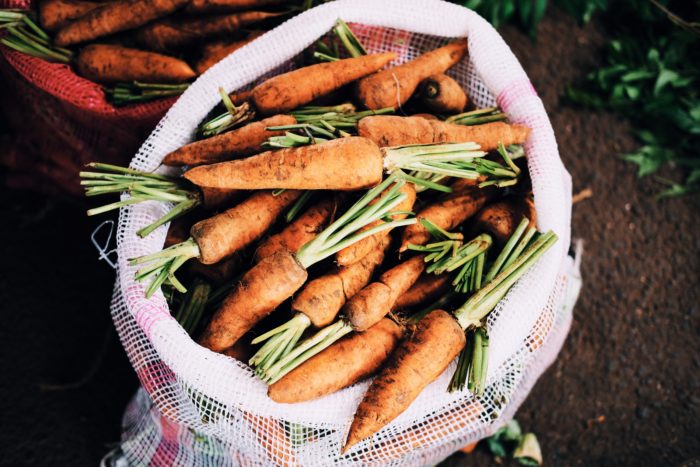
Beta-Carotene
Beta-carotene, a form of vitamin A, is another effective antioxidant that helps fight skin aging.
The skin’s epithelial layer is very sensitive to vitamin A deficiency. And if your skin becomes deficient in this nutrient, that could be a factor behind poor skin health and premature aging.
Research shows that our skin is concentrated with beta-carotene. And that this nutrient helps provide photoprotection against the sun’s damaging rays.
With enough beta-carotene in your diet, you are giving your skin it’s own protection against sunburn and the aging effects that come with it.
Getting adequate beta-carotene in your diet can be as simple as eating plenty of carrots, pumpkin, sweet potatoes, mango, and papaya. Not only do these foods taste great and provide many internal benefits, they can also help fight some signs of skin aging! Here’s a list of foods high in beta-carotene.
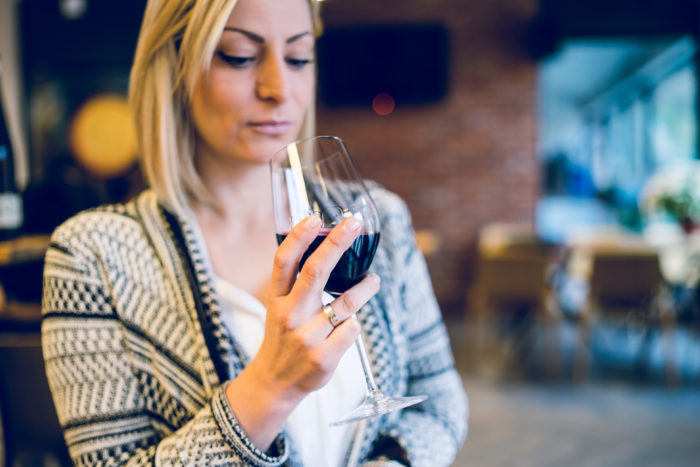
Polyphenols
When it comes to food sources of antioxidants, polyphenols are way ahead of the rest.
These super-powered antioxidants are not only beneficial for your overall health, including your gut health, they are great for your skin as well.
Research shows that polyphenols provide defense for your skin against UV radiation and oxidative damage from the sun’s rays.
This protection not only helps keep your skin from showing signs of aging, but it helps decrease your risk of skin cancer.
You can find polyphenols in fruit juices, tea (especially green tea), coffee, red wine, vegetables, chocolate, and legumes. All these sources of this natural anti-inflammatory compound are beneficial to add to your diet to prevent skin aging.
Just don’t drink TOO much coffee and red wine, because caffeine and alcohol can make you dehydrated which leads to instantaneous aging skin.
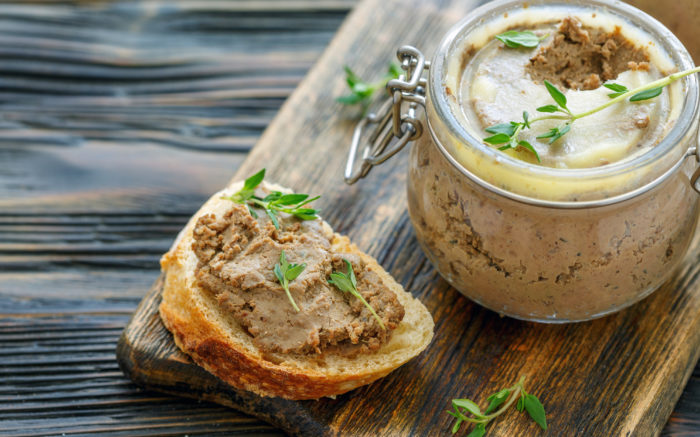
Ubiquinol (Coenzyme Q10)
Coenzyme Q10 is a vitamin-like substance stored in the fat cells in our body.
In the skin, Coenzyme Q10 is mainly found in the epidermis. Within the skin’s layers, this powerful antioxidant acts as a first line of defense against skin aging.
A study of women aged 45-60 showed that those who supplemented with Coenzyme Q10 showed a significant improvement in skin elasticity and skin smoothness compared to women who did not supplement.
This skin-protective substance is in high quantities in oily fish (like salmon and tuna), organ meats (yet another reason to eat liver), and whole grains.
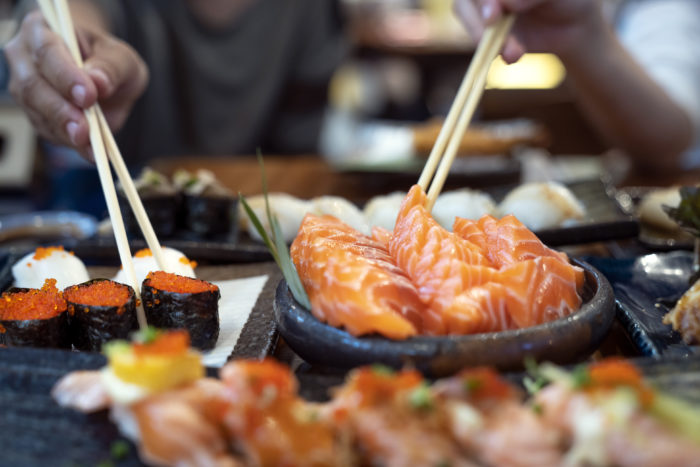
Essential Fatty Acids
Essential fatty acids are critical for our body’s biological processes. These are “essential” because they’re nutrients we cannot make on our own. We have to get these fats from our diet.
Without enough of these fats in our diet, our body doesn’t work as efficiently, and that includes our skin.
When it comes to skin health, essential fatty acids are needed for the creation of the fats that make up your skin. And skin that has enough levels of fat is less likely to wrinkle or sag – two primary signs of aging.
Also, people who ate a diet rich in omega-3 fatty acids experienced less UV-induced inflammation, meaning fewer sunburns, than people who didn’t.
Essential fatty acids, such as DHA and ALA, are in foods like fatty fish, shellfish, flaxseed, chia seeds, leafy greens, and avocados. Here’s a list of high omega-3 containing foods.
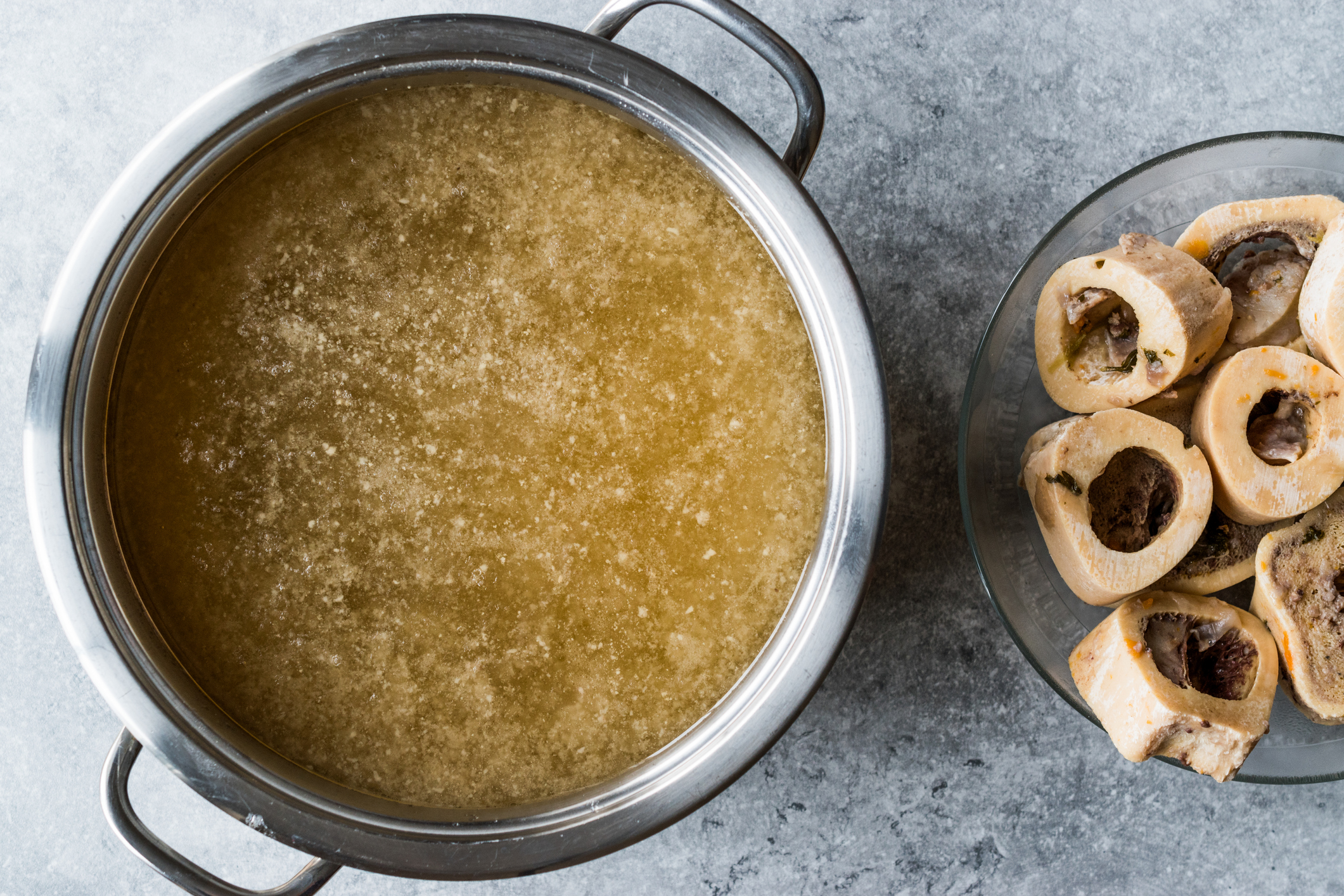
Collagen
Collagen is a major structural component of your skin.
This protein strengthens skin, providing more elasticity, and helps hold hydration. As we age, our bodies tend to produce less collagen. This leads to drier, more wrinkled skin.
Along with vitamin C, there is some evidence that dietary collagen can actually promote collagen formation in our skin. By increasing the formation of collagen in our bodies, we can slow the effects of collagen loss and the visible aging that comes along with it.
You can take collagen peptides as a supplement, or get it from natural sources. The absolute best way to get collagen in your diet is through bone broth from beef, poultry, or fish sources. You can also make homemade gelatin as a skin health-boosting treat.
Want to learn more about the amazing benefits of collagen in our diets? My mom Pamela Schoenfeld has written a book all about collagen! Click here to check out The Collagen Diet on Amazon!

Skincare to Fight Skin Aging
Improving your diet can improve your chances of fighting skin aging.
But sometimes diet alone isn’t enough to combat undesirable changes to your skin as you grow older.
These changes to your skin don’t make you any less beautiful of a person, and we all need to evaluate our perspective on aging as a culture. But there’s nothing wrong with wanting to reduce or avoid fine lines, wrinkles, hyperpigmentation, and discoloration.
There are so many skincare products on the market that promise to make your skin look years younger. While these claims may have some truth to them, not all anti-aging skin care products are created equal.
Skincare products are a major source of potentially harmful chemicals that we’re exposed to every time we use them.
Anti-aging products, particularly, use the chemical retinol to help firm skin and reduce fine lines. But using too much retinol can make your skin more sensitive, specifically to UV light. This increased sensitivity, in turn, can increase your chances of developing skin cancer.
Because of this, you may want to avoid using retinol-containing skincare products over the long term.
For a healthy alternative to retinol, I suggest using Beautycounter’s Countertime line for anti-aging skincare.
This line features bakuchiol, a natural age-fighting compound. Bakuchiol is equally as effective as Retinol at reducing signs of skin aging, without the negative side effects.
If you need some help fighting the signs of skin aging beyond your diet, Beautycounter’s Countertime line is an effective and safe way to get started.
And DON’T forget the sunscreen! Beautycounter also makes some great reef-safe sunscreen for both your face and body. It really is no joke that sun protection makes a huge impact on preventing aging.
That doesn’t mean we have to fear the sun, but if you’re going to be out for much more than 10-20 minutes, you should consider wearing sunblock to help reduce the UV damage from prematurely aging my skin.
The Bottom Line on Diet for Skin Aging
Antioxidants are key when it comes to changing your diet to fight the signs of skin aging.
These powerful compounds help to reduce inflammation, protect against UV radiation, and increase the health of your skin.
Ensure that you’re getting plenty of antioxidants by eating a well-rounded diet full of fresh, colorful fruits and vegetables, high quality proteins, and healthy fats.
And if diet alone doesn’t seem like enough to improve your skin health, look for anti-aging products that contain safe anti-aging ingredients.
Now tell me, what have you done to change your diet, lifestyle, and skincare routine to combat the signs of aging?
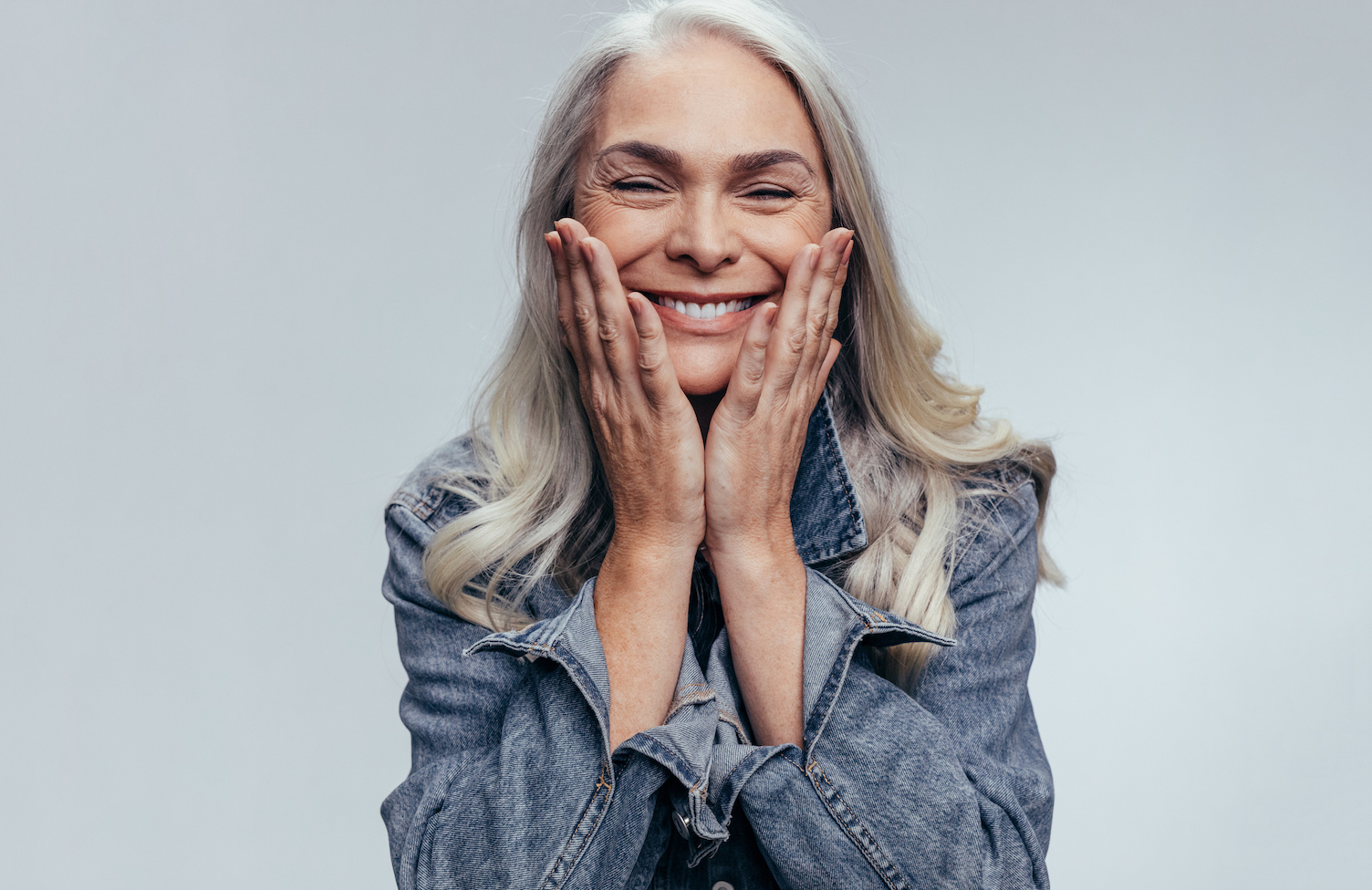
+ show Comments
- Hide Comments
add a comment